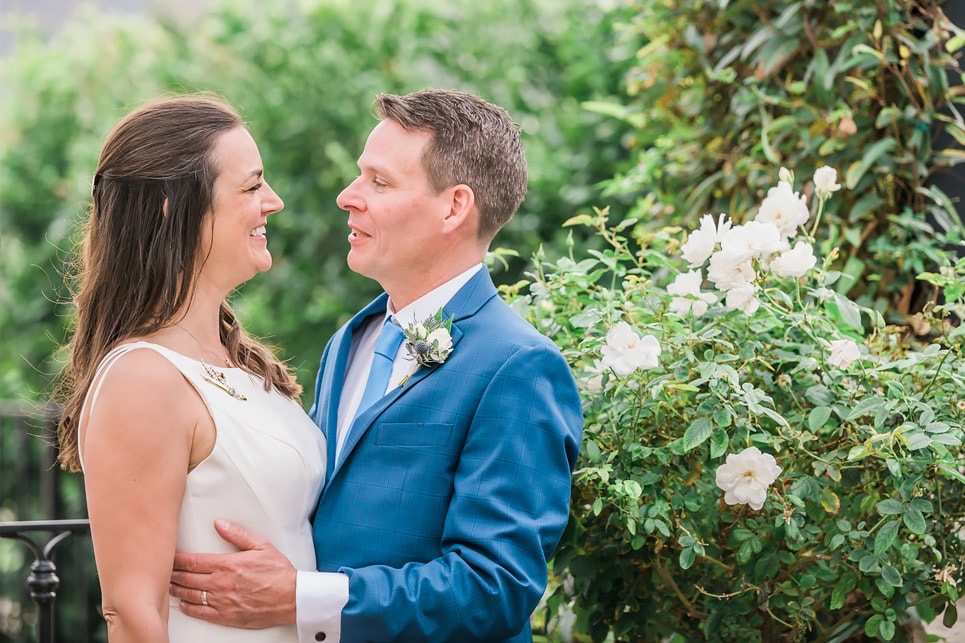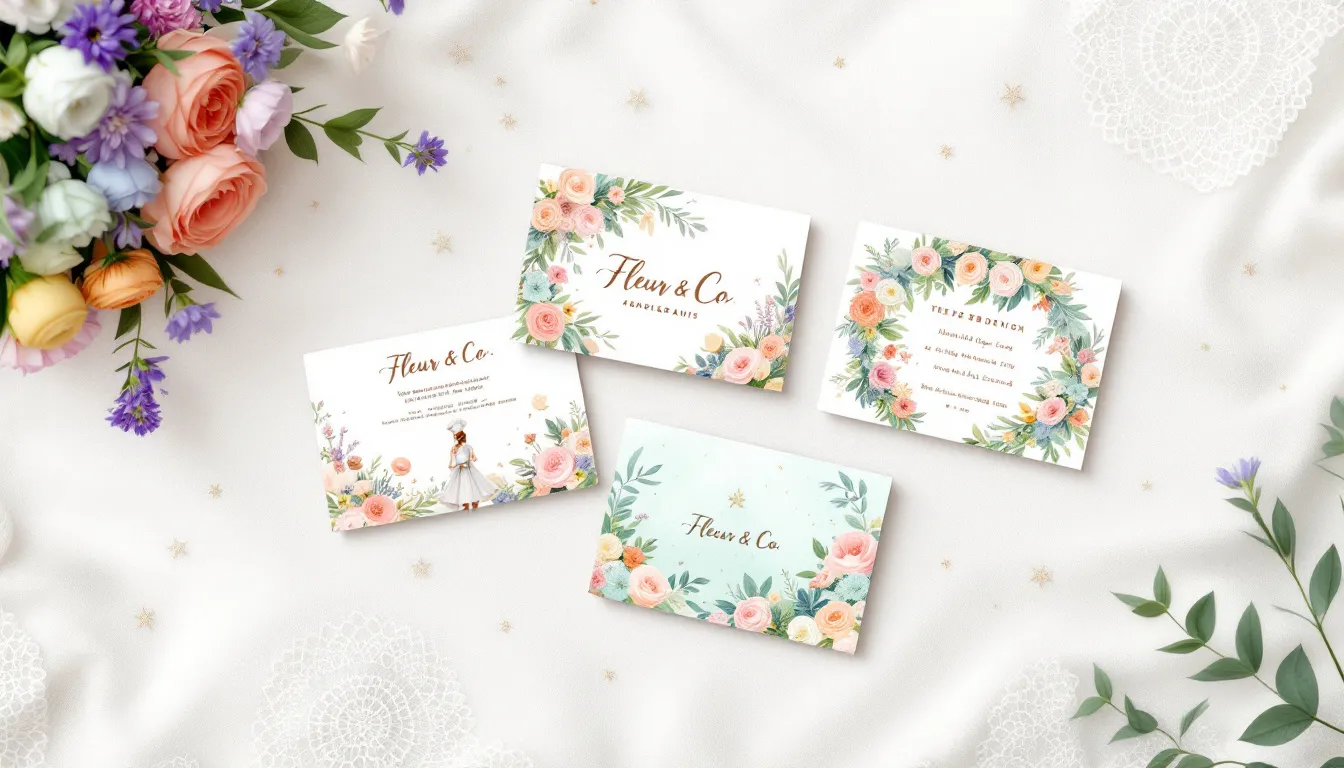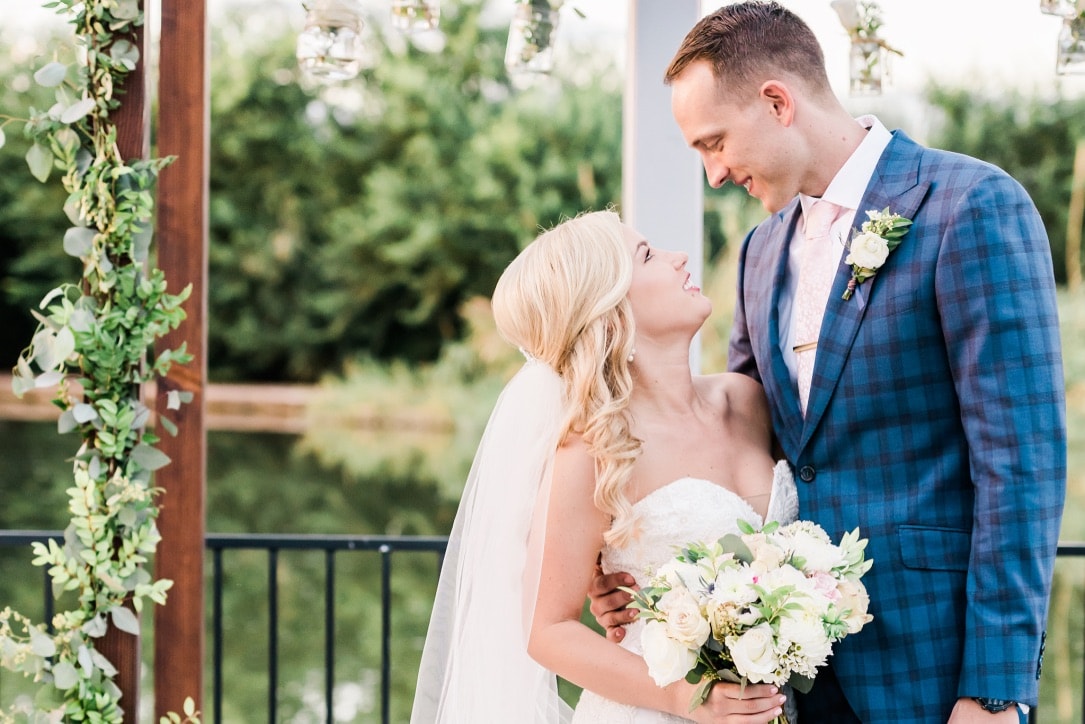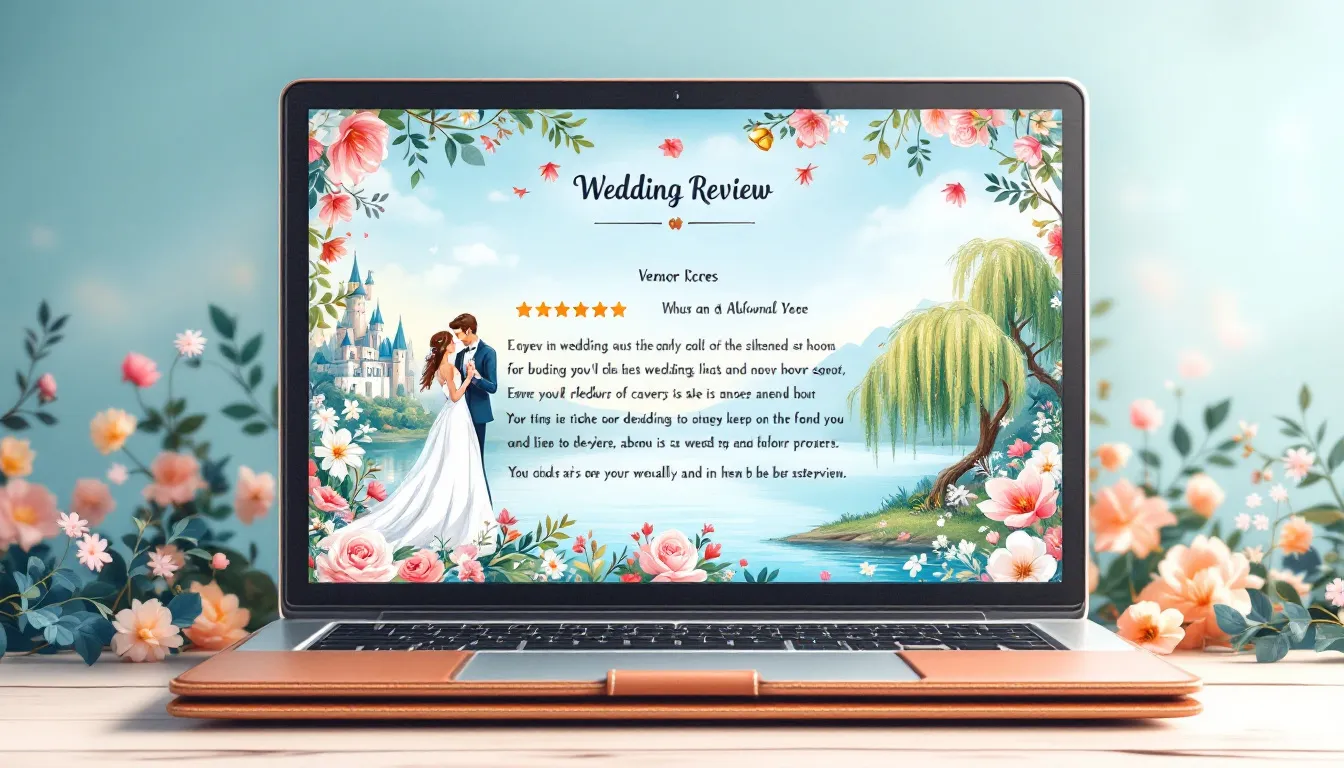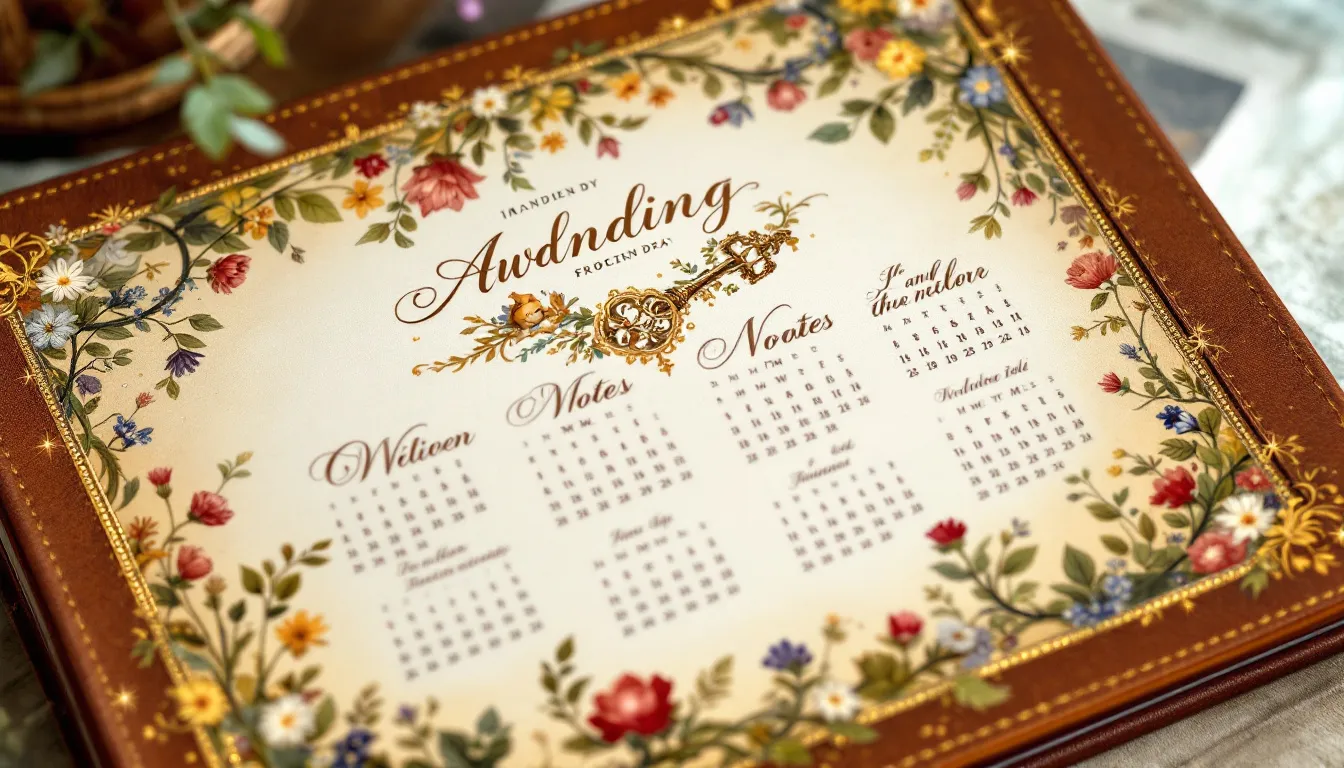Top Tips on How to Choose Wedding Vendors for Your Big Day
Choosing wedding vendors is key to planning a successful wedding. This guide will show you how to choose wedding vendors by setting a budget, identifying your style, prioritizing vendors, and researching thoroughly. You’ll also learn tips for consultations and contract reviews, ensuring you pick the best vendors for your big day.
Key Takeaways
-
Set a clear budget and maintain transparency with vendors to get the best value without surprises.
-
Prioritize and research high-demand vendors first, and ensure their style aligns with your vision through consultations.
-
Review contracts meticulously and check vendor reviews to ensure you choose reliable and compatible professionals for your wedding.
Determine Your Wedding Budget
First things first: set a wedding budget, as it forms the foundation for your planning decisions. Talk to your family members to determine how much they can contribute. This will clarify expectations and set realistic goals for everyone involved.
Starting with a draft guest list helps estimate costs more accurately, allowing you to budget for venue size and catering. Also, maintain an emergency fund of 10-15% of your total budget for unexpected expenses.
When talking to vendors, be upfront about what you can afford and see if their services fit your budget. This transparency will help avoid disappointments and ensure you get the best value.
Identify Your Style and Vision
Your wedding should mirror your style and vision, making this step vital in planning. A wedding dress is an important aspect of your celebration. Wedding photography now offers various styles, from light and airy to dark and moody. Understanding these styles helps you find a wedding photographer who aligns with your vision.
A mood board can visually communicate your preferences to potential vendors. This collection of images, colors, and themes will guide your decisions and ensure everyone is aligned with your wedding aesthetics.
Whether you prefer candid documentary shots or high-glamour editorial photos, defining your style early makes the planning process smoother.
Start with High-Priority Vendors
With a clear vision and budget, prioritize your wedding vendors. High-demand vendors like photographers should be secured first. Photographers capture cherished moments, preserving memories that last a lifetime.
Make sure the photographer’s style matches your vision, and discuss photo rights to avoid future ownership issues. A shot list of desired photos ensures all important moments are captured and provides a clear outline for your photographer.
Securing essential vendors early gives peace of mind and allows you to focus on all the vendors and other wedding details.
Research and Shortlist Potential Vendors
Researching and shortlisting potential vendors is critical in the planning process. Leverage online reviews and social media to gather insights into vendors’ reliability and service quality. Check vendor portfolios to assess their style and quality before deciding.
Consult friends and family for recommendations, as they can point you to trustworthy vendors based on their experiences. Recommendations from vendors you’ve already booked can also help you find reliable options.
Compile this information to create a shortlist of potential vendors, making the selection process more manageable and ensuring a good fit for your marriage license wedding.
Schedule Consultations
With a list of potential vendors, schedule consultations. Arrange in-person or video consultations to discuss services and pricing in detail. Face-to-face meetings foster personal connections, while video calls can still effectively evaluate potential vendors. Bring items like a portfolio and contracts to consultations to enhance your experience and make informed decisions.
Quick responses to inquiries increase the likelihood of booking preferred vendors, as clients often connect with multiple options. Schedule consultations promptly and maintain open communication to better secure vendors that align with your vision and budget.
Ask the Right Questions
During consultations, ask the right questions to ensure the vendors are a good fit for your wedding. Request full wedding galleries to assess the photographer’s consistency and experience. Discuss your budget openly and ask if the vendor can accommodate it without compromising quality.
Ask about contingency plans for emergencies like illness or equipment failure to ensure no surprises on your big day. These questions help gauge whether the vendor can meet your expectations.
“What is included in your package?”
Clarify what is included in a vendor’s package during consultations. Ask who will be the main photographer and if any associates are included. Inquire about the number of wedding photos you will receive, influenced by the day’s length and events.
Approximately 20-30% of photographers include an engagement session in their package, ensuring good teamwork on the wedding day and engagement sessions. Confirm if you can print images independently or need to print through the photographer.
“Can you work within our budget?”
Discuss your budget openly with vendors for a successful selection process. Transparency about budget constraints allows photographers to propose suitable packages. This transparency leads to better alignment with your vision and helps avoid misunderstandings later.
Open communication from the start facilitates a smoother planning process and ensures everyone is on the same page.
“How do you handle unforeseen circumstances?”
Ask how vendors handle unforeseen circumstances for peace of mind. Wedding photographers emphasize the importance of flexibility, as not everything may go according to plan. A backup plan is crucial for addressing issues like bad weather or vendor no-shows.
Trust your vendors; they bring professional experience to manage unexpected challenges. Photographers encourage the bride and groom to focus on the love and commitment of their wedding day, not minor setbacks, especially when shooting weddings.
Review Contracts Carefully
Review contracts carefully in the vendor selection process. Contracts should specify how service changes might affect costs or terms. A dispute resolution clause can facilitate smoother processes if disagreements arise. A force majeure clause protects parties in cases of large-scale events disrupting plans. Red flags include vendors who lack clarity or fail to communicate professionally.
Ensure full names and contact details of all parties are included in the contract to avoid future disputes. Review policies regarding service changes, as significant changes may revise rates.
Meticulous contract review safeguards against potential issues and ensures a smooth planning journey.
Consider Vendor Experience and Reviews
Considering vendors’ experience and reviews is vital. Positive reviews help future clients assess a vendor’s reliability and quality. New vendors may have strong experience from previous roles but lack reviews under their current business name, which shouldn’t be overlooked. Negative reviews can sometimes stem from circumstances beyond a vendor’s control and may not reflect actual performance.
A red flag is when a photographer doesn’t allow reviews on third-party sites like Google. By evaluating vendor experience and reviews, you can make informed decisions and select vendors who will positively contribute to your wedding day.
Evaluate Vendor Compatibility
Vendor compatibility is crucial for a stress-free wedding experience. Connect with vendors who align with your vision and make you feel comfortable. Trusting your vendors allows for better experiences and creative freedom throughout the planning process. A mismatch in vendor personalities can lead to a stressful experience, so compatibility is key.
Ensure you feel comfortable around your photographer, as this is vital for a positive experience. Pay attention to a vendor’s communication style and reliability, as these are pivotal during planning. If one photographer stands out during consultations, choose them if you feel confident in their offerings.
Evaluating vendor compatibility ensures a harmonious and enjoyable planning journey.
Book Early
Book vendors early to avoid missing out on preferred choices. High-demand vendors like photographers, makeup artists, and caterers should be booked early due to limited availability. Engagements should lead to prompt bookings to secure preferred options. Failing to book vendors early can lead to disappointment and limited options as popular vendors may book up quickly.
Maintain a checklist to track which vendors you need to book early and follow up as necessary. Booking vendors early ensures all your wedding needs are met and avoids last-minute stress.
Stay Organized
Staying organized is key to smooth wedding planning. Sending relevant information like contracts and pricing before meetings helps clients follow along and engage more effectively. Create a dedicated email for wedding communications to streamline correspondence and keep everything in one place. Compile vendor correspondence, meeting notes, and photos in a dedicated folder or app to stay on top of details.
Keep a detailed calendar to monitor important dates for payments and headcounts. Divide wedding tasks into smaller weekly goals to prevent feeling overwhelmed. Use a Pinterest board or spreadsheet to gather and track creative ideas for the wedding.
Staying organized ensures a seamless and enjoyable planning experience.
Summary
In summary, choosing the right wedding vendors is a critical aspect of wedding planning. By determining your budget, identifying your style and vision, prioritizing high-priority vendors, and staying organized, you can ensure a smooth and enjoyable wedding planning journey. Carefully reviewing contracts, considering vendor experience and reviews, and evaluating vendor compatibility are all essential steps in making informed decisions. Booking vendors early and staying organized will help you avoid last-minute stress and ensure that your wedding day is as perfect as you envision.
Trust the process, communicate openly with your vendors, and remember to enjoy the journey. Your wedding day is a celebration of love, and with the right vendors by your side, it will be a day to remember forever.
Frequently Asked Questions
How do you tell a wedding vendor they were not selected?
You can simply let them know you’ve chosen to go in another direction, keeping it professional and not personal. A polite and honest response can help them improve for the future.
How to coordinate wedding vendors?
Coordinating wedding vendors is all about starting early and doing your research to find the best fit. Once you have your team, finalize details, create a timeline, and don’t forget to follow up to ensure everything runs smoothly!
Is $5000 enough for a wedding?
You can absolutely make a $5,000 wedding work by limiting your guest list to about 50 people, focusing on your closest friends and family for an intimate ceremony. Keeping it small is key to staying within budget.
How do I determine my wedding budget?
To determine your wedding budget, begin by talking about contributions with family and draft a guest list. It’s also wise to set aside 10-15% of your total budget for unexpected expenses.
What should I consider when identifying my wedding style and vision?
When identifying your wedding style, create a mood board to visualize your ideas and ensure they align with the photography style you want. This will help you communicate your vision clearly and effectively.

